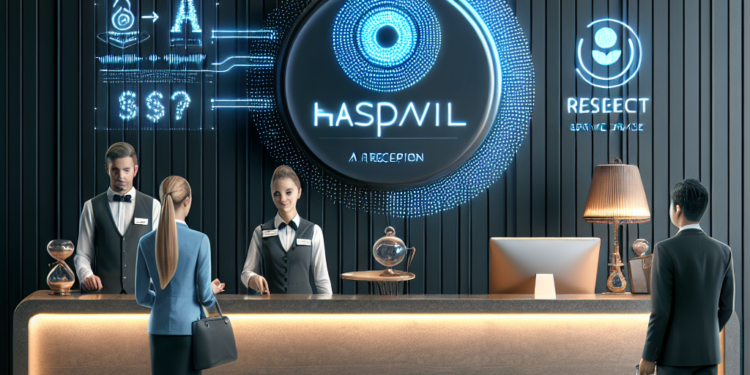Artificial intelligence (AI) technology has been rapidly advancing and transforming various industries, including the hospitality industry. From hotels to restaurants, AI is being integrated into various aspects of the hospitality business to streamline operations, improve customer experience, and drive revenue growth. In this case study, we will delve into the applications of AI in the hospitality industry and how it is revolutionizing the way businesses operate.
One of the key areas where AI is making a significant impact in the hospitality industry is in customer service. AI-powered chatbots and virtual assistants are being used by hotels and restaurants to engage with customers in real-time and provide them with personalized recommendations and assistance. These virtual assistants are able to understand natural language and respond to customer queries promptly, thus improving customer satisfaction levels. For example, Hilton Hotels has implemented an AI-powered virtual concierge service called Connie, which helps guests with booking recommendations, local attractions, room service orders, and more.
In addition to customer service, AI is also being used to enhance the overall guest experience in hotels. For example, many hotels are incorporating AI-powered smart rooms that are equipped with voice-activated assistants like Amazon’s Alexa or Google Home. These smart rooms allow guests to control lighting, temperature, TV, and other amenities with voice commands, making their stay more convenient and comfortable. Marriott International has partnered with Samsung and Legrand to create the Internet of Things (IoT) guest room, which utilizes AI to customize and adjust room settings based on guest preferences.
Furthermore, AI is being utilized in revenue management to optimize pricing strategies and maximize profits for hotels and restaurants. AI algorithms can analyze market trends, competitor pricing, and customer behavior to recommend the best pricing strategy for each room or dish, ensuring maximum revenue generation. For example, AccorHotels uses AI-powered revenue management software to predict demand patterns and adjust pricing dynamically based on real-time data, resulting in increased revenue and occupancy rates.
Moreover, AI is also revolutionizing the way hotel operations are managed. AI-powered systems are being used to automate and streamline various processes, such as check-in/check-out procedures, housekeeping tasks, inventory management, and maintenance requests. For instance, the Wynn Las Vegas hotel has deployed an AI-powered system that automatically assigns housekeeping tasks based on room occupancy and guest preferences, resulting in improved efficiency and productivity.
In the realm of food and beverage, AI is being leveraged to enhance the dining experience for guests. Many restaurants are utilizing AI algorithms to analyze customer data and preferences to create personalized menus and recommendations. Additionally, AI-powered robots are being used in some restaurants to assist with food preparation, cooking, and serving, reducing human error and improving speed and efficiency. For example, Spyce Kitchen in Boston uses a robotic chef that can cook and serve custom meals in just a few minutes, providing a unique and futuristic dining experience.
Another area where AI is playing a crucial role in the hospitality industry is in marketing and customer engagement. AI algorithms are able to analyze vast amounts of customer data to create targeted marketing campaigns and personalized promotions. Hotels and restaurants can use this data to predict customer behavior, tailor marketing messages, and offer customized loyalty programs to drive customer engagement and repeat business. Starbucks, for example, uses AI-powered customer analytics to send personalized offers and recommendations to customers based on their preferences and purchase history.
In conclusion, AI technology is reshaping the hospitality industry in profound ways, from customer service and guest experience to revenue management and operations. By embracing AI solutions, hotels and restaurants can provide a more personalized and efficient service, increase revenue, and stay ahead of the competition. As AI continues to evolve and become more sophisticated, we can expect to see even more innovative applications of this technology in the hospitality industry in the years to come.













